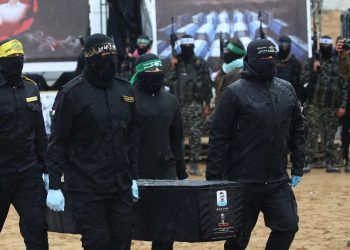Indian tax department raids at BBC offices entered a second day Wednesday, journalists at the broadcaster told AFP, in an action rights groups linked to critical coverage of Prime Minister Narendra Modi.
Press freedom in the world’s biggest democracy has suffered during Modi’s tenure, rights activists say.
The government has denied the raids were politically motivated but a spokesman for his ruling party accused the British outlet of engaging in “anti-India propaganda” after the raids began.
The search comes weeks after the BBC aired a documentary on his actions during sectarian riots in 2002 that left at least 1,000 people dead, mostly minority Muslims.
Officers entered the New Delhi and Mumbai offices of the British media outlet on Tuesday morning, confiscating phones and accessing computer terminals.
Authorities were questioning individual staff members on Wednesday after allowing editorial staff to leave the previous evening.
“They are questioning the administrative managers after scanning all the digital devices,” a journalist at the broadcaster told AFP, requesting anonymity because they were not authorised to speak to the media.
The BBC asked staff to work from home and only key persons were allowed to return to the office, which has been sealed to unauthorised visitors since Tuesday.
In a brief statement Tuesday, the broadcaster said it was “fully cooperating” with authorities.
“We hope to have this situation resolved as soon as possible,” it added.
The Income Tax Department said the broadcaster was in “deliberate non-compliance” with its regulations, according to Indian media reports quoting unnamed government sources.
But the Committee to Protect Journalists said the timing of the raid just weeks after the documentary aired “smacked of intimidation”.
“Indian authorities have used tax investigations as a pretext to target critical news outlets before,” the watchdog’s Beh Lih Yi said in a statement.













































